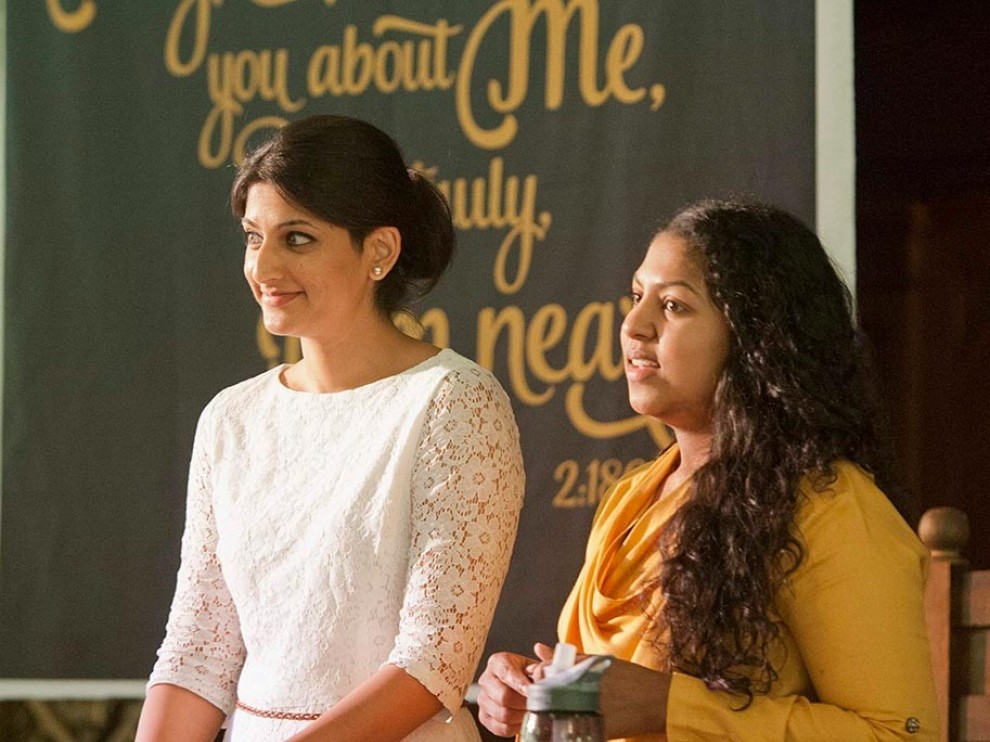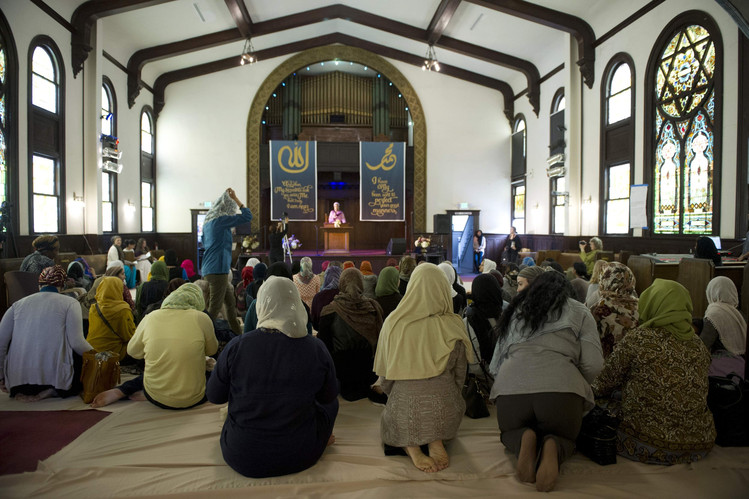The Women’s Mosque of America, founded by M. Hasna Maznavi and Sana Muttalib, held its very first Friday prayer a little over a week ago on January 30. Edina Lekovic, from the Muslim Public Affairs Council, gave the khutbah, or Friday sermon and its theme centered on “spiritual nourishment.”
Lekovic stressed the importance of Muslims, particularly Muslim women, taking ownership of our faith and internalizing the idea that Islam sees men and women as spiritual equals. She reminded the worshipers that although this is the first all-female mosque in America, it is not the first in the world. Women’s mosques in China, India, Chile, Uzbekistan, Maldives, and Germany have already set the precedent for Muslim American women.
We spoke to the founder of the mosque, Hasna, and her co-president, Sana, about their goals and challenges.
What sparked the idea to begin this initiative?
Hasna: I went to a conference at University of California, Santa Barbara about reconstituting female authority in Islam. [After all, we have] a rich history of female leadership in early Islam. There I learned about the book “Destiny Disrupted” by Tamim Ansary and began taking classes with Shaykha Reima Yosif. Listening to Shaykha Reima speak left me feeling empowered. I never knew how disempowered I was until I was empowered! She spoke to me and not at me about female experience. [These classes were the first point of inspiration for our mosque.]
The second catalyst was the Qur’an itself. The single most inspiring read for me was the English translation of the Qur’an. I learned what was in it and what was not in it. The Qur’an talks about a merciful and a compassionate God [who calls] on men and women equally. [So these two experiences together brought me to] the decision to build an all-female mosque. I wanted this to be a space which nourishes scholarship and leadership among Muslim women and addresses pressing women’s issues in the global Muslim community.
Was there a personal experience that was particularly motivating in making this happen?
Hasna: Even as a child, it was always a goal in the back of my mind to build a mosque before I die. I wanted to build something in this life that could keep giving even after I was long gone. Growing up I attended a mosque where men, women and children prayed together in one large space, young people had access to the imam and we all felt welcome. Because the building used to be a church, at some point the mosque leadership decided to renovate the edifice to resemble Eastern architecture (domes and all). Somehow the physical remodeling turned into a cultural renovation. By that I mean the women suddenly found themselves on the second floor, completely cut off from the main prayer hall. When the architecture changed so did women’s access. The memory stayed with me and in recent years my childhood dream to build a mosque resurfaced.
What are the themes and topics that you hope to explore in the mosque’s Friday sermons?
Sana: We want to explore the female perspective on all kinds of religious issues that are relevant to women. [We are aware that these sorts of topics] can become heavy so we hope to inject an uplifting tone into the sermons.
What are the resources you would like to see the women’s mosque providing to women and children in the community?
Hasna: At our mosque I hope to hold workshops so everyone can read the English translation of the Qur’an. We plan on having Friday prayers once a month, but of course that depends on funding. And we’d like to post our Friday lectures on YouTube so everyone can benefit from hearing the female perspective on Islamic scholarship and spirituality. I want to equip women with skills that they can carry back to their own local mosques. Many male Imams have donated to our mosque and are eager to take part in helping it grow. The end goal is not simply to have a terrific women’s mosque, but also to create collaborative initiatives with other mosques so their conditions improve and their female presence increases.
How do you hope to see the mosque growing in the next five years?
Sana: We want chapters all over the country. Our idea is that each chapter will be the epicenter for that state to train, educate and empower Muslim women.
Samara Yusuf conducted this interview with the founders of the Women’s Mosque. She is currently a law student.
(Photo Credit: Al Jazeera America)






1 Comment